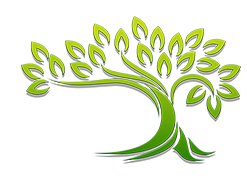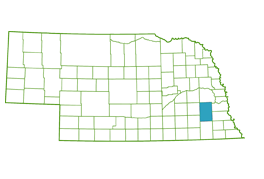|
|
Listings: 1 to 24 of 24
|
If you are looking for information about English-speaking Facebook groups & pages related to genealogy & history , look no further. The professional speaker, genealogist, and artist , Katherine R. Willson, has posted at her website, Social Media Genealogy, a PDF entitled “Genealogy on Facebook List”
This 288 page PDF file contains 10,000+ links to English-speaking Facebook groups and pages related to genealogy and history. The document was last updated on August 3, 2016.
If users of this list are interested in being notified each time the list is updated, they are asked to “please “like”Katherine's professional Facebook page” at: www.facebook.com/SocialMediaGenealogy.org.
|
|
When we search for our ancestors, we often come across terms that are rarely used anymore and some that were never particularly common. We may find Latin terms in church books, medical terminology in death records (he died of what?), abbreviations on tombstones, and legalese in court records.
Modern dictionaries do not always help, particularly if the word is archaic as these are often only found by searching for the modern equivalent which brings to mind the old saying “if I knew how to spell it I wouldn’t need a dictionary” although in our case the spelling could change from record to record, it is the meaning we need in order to understand the information we have uncovered.
With these things in mind we have collected and selected terms from various sources and fields of study that you may come across in your genealogical research. These lists are added to and edited as terms are added and definitions are refined. Think of them not just as research aids, but as living lists of dead (or almost dead) words.
|
|
Compiled by Dan Burrows, the information at this site is provided freely for redistribution. Also at the site are links to the following Nova Scotia materials.
Digby (County) Genweb
Digby Researchers
Census
Parish Records
Births
Marriages
Cemeteries
Obituary Index
Scenes from the Past
Links & Resources
|
|
This article from ThoughtCo, discusses how, by tracing the possible origin of your last name, you can learn more about your ancestors who first bore the surname and, ultimately, handed it down to you. Surname meanings can sometimes tell a story about your family, one handed down for hundreds of years.
|
|
Old medical terms found in records explained.
|
|
This map shows everyone who immigrated to the United States between 1820 and 2013 (1 dot = 10,000 people).
The data is from the DHS Yearbook of Immigration Statistics and includes only people who attained permanent resident status. Most illegal immigration is not included.
NOTE: click on the phrase, "Full screen interactive map / HD video" which is below the interactive map, to enlarge the map to full-screen. In addition, use the controls below the map to move back and forth in time or to pause / resume the animation.
|
|
This vast online collection of World War I era newspaper clippings is from a single unique source: the 400-volume, 80,000-page set, World War History: Daily Records and Comments as Appeared in American and Foreign Newspapers, 1914-1926. Beginning with the assassination of Austrian Archduke Franz Ferdinand on June 28, 1914 and extending to the November 11, 1918 armistice and years after, the clippings yield significant information about the political, social, cultural, and economic impact of the war as it is taking place and its aftermath. The clippings cover far beyond the valuable contemporary news reports and contain war-related editorials, features, cartoons, photos, maps, and more. Front pages and full-page features of New York City newspapers are frequently presented, while many newspapers from around the country and some foreign ones are represented through clipped individual articles and cartoons.
|
|
Did your ancestor obtain land from the federal government through the Homestead Act, as a bounty for military service or through other federal programs to promote settlement? You can obtain more information by visiting the Bureau of Land Management site. Click on "Search Documents"
|
|
A project of the National Ar chivies. Citizens can help archive, transcribe and share images and resources.
|
|
To get the most out of any Google search for your ancestors, it is necessary to understand how Google works. An important consideration is to realize that Google runs different search engines in different parts of the world.
|
|
A comprehensive collection of website links for genealogy research.
|
|
Dead Fred's Genealogy Photo Archive, a free, fun photo genealogy research web site devoted to helping you visualize your heritage!
While membership is not required to use the site, an annual membership fee gives users access to additional information, including a special photo posting area and the ability to change or delete records and photos without having to contact the DeadFred.com staff.
|
|
A source of billions of records including census, military, vital, church, etc.
|
|
Knowledge of first name abbreviations can be very helpful in tracking down ancestors. The list here is a compilation of common abbreviations for first names. It may be the most exhaustive list available on an important but often overlook.
|
|
GenealogyInTime Magazine is a free genealogy website. The site is much more than just an online magazine. It is a genealogy platform with tools and resources to help people find their ancestors.
|
|
Looking for an informative article to explain what genealogy is all about to someone unfamiliar with what genealogy is? This article at Home Advisor.com can help you do this.
|
|
You can train yourself to read old handwriting. This is a necessary skill if you want to read handwritten census records or any type of record that was produced before the wide-spread use of the typewriter in the 1920s. This article lists the best free online resources and tutorials to help get you started.
|
|
The Internet Archive, a 501(c)(3) non-profit, is building a digital library of Internet sites and other cultural artifacts in digital form. Like a paper library, we provide free access to researchers, historians, scholars, and the general public. Includes census records and much more of interest to genealogists.
|
|
This site presents information about NDIIPP partners and initiatives, along with details about digital preservation standards and best practices, tools and services and education and training. There is also a substantial section on personal digital archiving that focuses on tips and guidance for how individuals and families can preserve their digital memories.
|
|
If you have kin that lived in Missouri, the Missouri State Archives has a wonderful web resource that allows user to look up Missouri births & deaths - prior to 1910 & Â 1910 - 1962 free of charge.
|
|
Have you ever wished you could find links to all the online city directories in one place? A place where they were listed by location and in date order? This is the purpose of the Online Historical Directories Website. It is meant to be used as an aid to genealogists, historians, and other researchers.
There's a lot of work that needs to be done to this site, and with all the online databases available, it's likely this project will be a continuous work-in-progress!
|
|
At www.ourtimelines.com, users are able to generates fascinating personalized web pages that show how your life (or the life of anyone else you choose, fits into history as we know it. you may generate as many timelines as you wish.
Users who create their own web pages can even take the timelines that are generated and put them on their own pages thus adding an unmatched personal touch everyone will enjoy.
It is also possible to insert up to ten custom, color-coded personal time segments (events or ranges) in a time line. These might include schooling, marriages, job assignments, military service and so forth.
The site is free to use. However, if you use the timelines created at www.ourtimelines.com, in your web page or a publication, you need to attribute the information to them and put their copyright notice on your product.
|
|
The Preservation Directorate at the Library of Congress answers dozens of questions every week from the public. The topics of greatest interest are covered here and also in the Preservation FAQs and give special focus to preventive preservation measures, which are simple to achieve and are more economical than the options available once damage is done.
|
|
This time lapse map by Nick Mironenko is an incredible look at how drastically European borders have changed over the last 1000 years.
|
|
|

